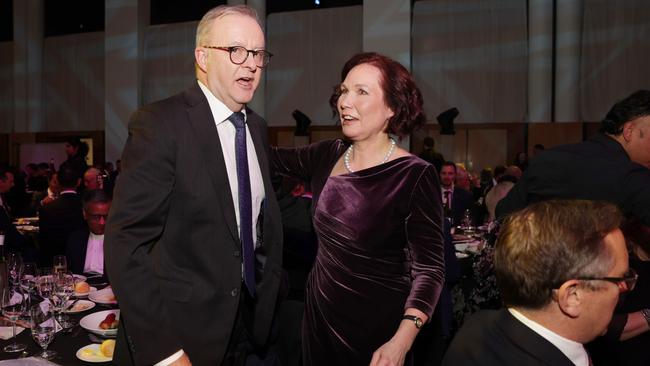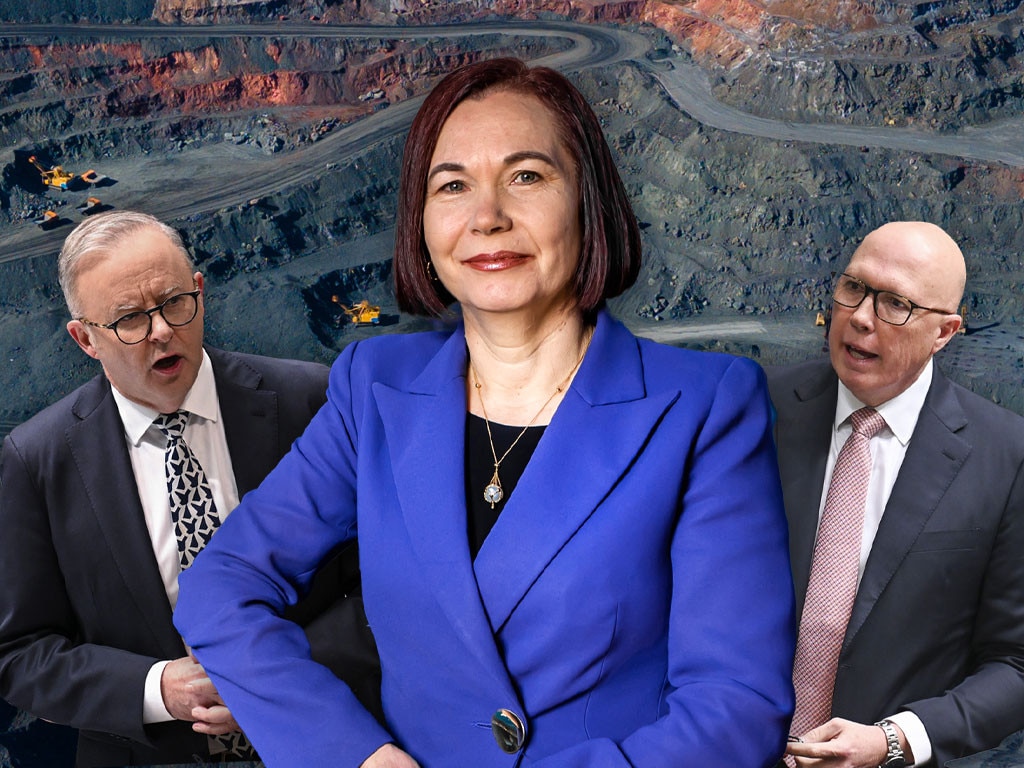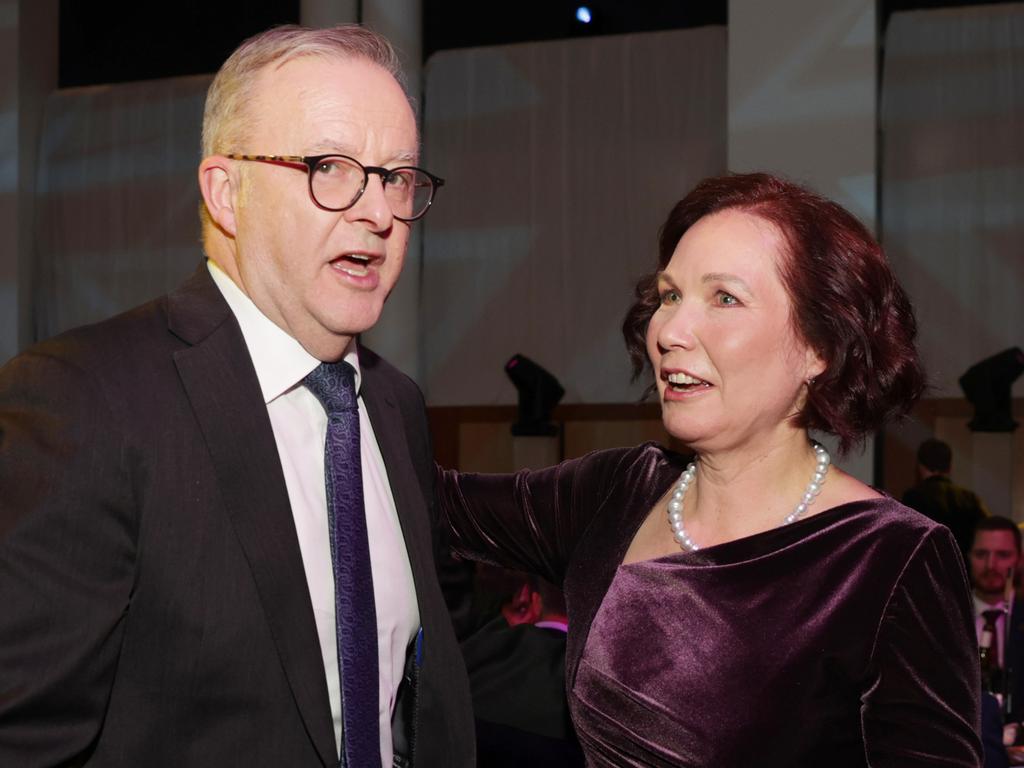
It holds true not just in national defence but in work and life. This does not mean you have to be belligerent, unreasonable or lack empathy for different views, just that it is better if people know where you stand on matters you consider important. It’s about setting boundaries and defending them.
It would appear that Australia’s business community has now finally got the memo that the meek will not inherit the Earth but buy a world of grief.
In two speeches in two weeks the leaders of peak business organisations have taken the opportunity of having the Prime Minister as a captive member of their annual dinner audience for an airing of grievances.
Tania Constable, from the Minerals Council of Australia, opened the batting in parliament’s Great Hall on September 10 and hers was the standout innings.
She described a mining industry under “siege” from “a steady stream of restrictive policy interventions … reckless industrial relations changes, and royalty raids, complex regulatory changes, and the looming threat of onerous and arbitrary environmental approvals”.
Next up was Business Council of Australia’s Bran Black, who reported on Wednesday night: “I’ve spoken to many CEOs who’ve said they are far, far more cautious about hiring after the government’s raft of recent workplace changes.”
It’s interesting that Black name-checked Constable and the heads of two other peak bodies in the audience, saying they were “all committed to working together”. Maybe business is learning something from the unions: if you want to fight a war you need to raise an army.
If you had to pick a moment that underscored the business community’s meek march towards its own demise, rewind to the 2022 Jobs and Skills Summit. For those who have forgotten, this jamboree was about Labor forging a “consensus” between business and unions to improve workplace relations and grow the economy.
In the lead-up the BCA and Council of Small Business Organisations Australia unveiled agreements with the Australian Council of Trade Unions over industrial relations changes. The small-business outfit would go so far as to agree to explore multi-employer bargaining, and dismissed the idea that it could be a Trojan horse for sector-wide pattern bargaining.
Before the summit the then head of the business council, Jennifer Westacott, appeared on the ABC’s Insiders with ACTU secretary Sally McManus, and both were lauded for what seemed like furious agreement. During the event the two held a joint press conference and all hailed the hands-across-the-water atmosphere as ushering in a new era of industrial harmony.
In the midst of the love-in a senior member of the fourth estate was called to parliament’s Queens Terrace cafe by one of this nation’s leading chief executives.
“We’re being had here, aren’t we?” the CEO observed.
“Too right,” the journalist replied.
What should have been evident to a cave salamander was that Labor was building a mirage of consultation over its intention to deliver the ACTU’s workplace agenda.
This is not a criticism of either McManus or the then workplace relations minister, Tony Burke. On the contrary, both had a strong view about what they believed was best for their constituents – workers, unions and Labor’s base – and stayed true to it. Neither could be described as weak.
They had a plan, they executed it, and used business as a human shield. At the summit’s end Burke was already announcing the government’s reforms. He indicated he was sympathetic to the unions’ call for multi-employer bargaining and underlined that he was seeking consensus and co-operation, not unanimity.
And Burke delivered for his people in spades. This has the not inconsequential side-effect of giving every union in the land a reason to be grateful to him. That will matter the next time the Labor leader’s job is up for grabs.
Meanwhile, business was having that nasty what-did-I-drink-last-night? morning after.
This column sought the views of business insiders and former politicians for an anonymous, unvarnished view of the meek past and the current, combative, stance of industry associations. One noted the associations were a reflection of their memberships and had been weakened because the nation’s largest companies were populated by “corporate bureaucrats who mistake access for impact”.
“In their mind, an angry minister is indicative of failure, not a necessary milestone to a better policy outcome,” he said. “They shit themselves if some idiot green activist turns up in a koala suit in their foyer, or with half a dozen proxy votes at their annual general meeting. They (and their directors) cannot resist the latest lefty fad, like the voice, not least because they don’t want to soil their chances of a comfy semi-retirement as a non-executive director.
“Collectively, the weathervane approach and puppy dog preference for being patted rather than issuing the odd bark has undermined their most important asset – latent power – the ability to shape outcomes without exercising brutal power.”
This weakness had emboldened Labor because it reckoned it could act without consequences. It would have shown more restraint if business had drawn clear red lines. “So they are the authors of their own predicament,” the insider said.
Another business insider pointed to the sway union-controlled industry super funds now have on companies. Big stakeholders were championing environmental, social and governance investing, and corporate bureaucrats seemed eager to celebrate every imposition.
“The companies are now lost in a woke labyrinth,” he said.
Current and former Coalition MPs hold big business in barely disguised contempt. Liberals trace the party’s break with corporates back to the 2007 election campaign, where the Howard government was fighting a rearguard action defending its overreach on WorkChoices. Corporates had begged for this industrial relations plan but when the political battle came they beat a retreat as unions poured $10m into a brilliant and brutal campaign.
One former minister said it was then he realised big business would “fight to the last drop of our blood”.
Another former minister said the conservative ill-feeling worsened as corporations championed every progressive cause, a tendency that reached its apogee during the voice referendum campaign. “They are now so self-loathing they don’t seem to mind legislation that puts them out of business,” he said.
The reviews are bad but self-awareness is the beginning of wisdom so it’s good to see the industry associations unmuzzled by their corporate masters. It’s also noteworthy that a new lobby group, Coal Australia, has emerged determined to make the case for an industry that is the nation’s largest energy resource and that delivers $100bn in export earnings.
To reflect on the mistakes of the past, and to stiffen their spine for a more combative future, corporate Australia should turn the page to Revelations 3:15:
“I know all about you: how you are neither cold nor hot. I wish you were one or the other, but since you are neither one nor the other, but only lukewarm, I will spit you from my mouth.”







There is a saying you hear a lot in the Middle East: no one respects anyone who is weak.